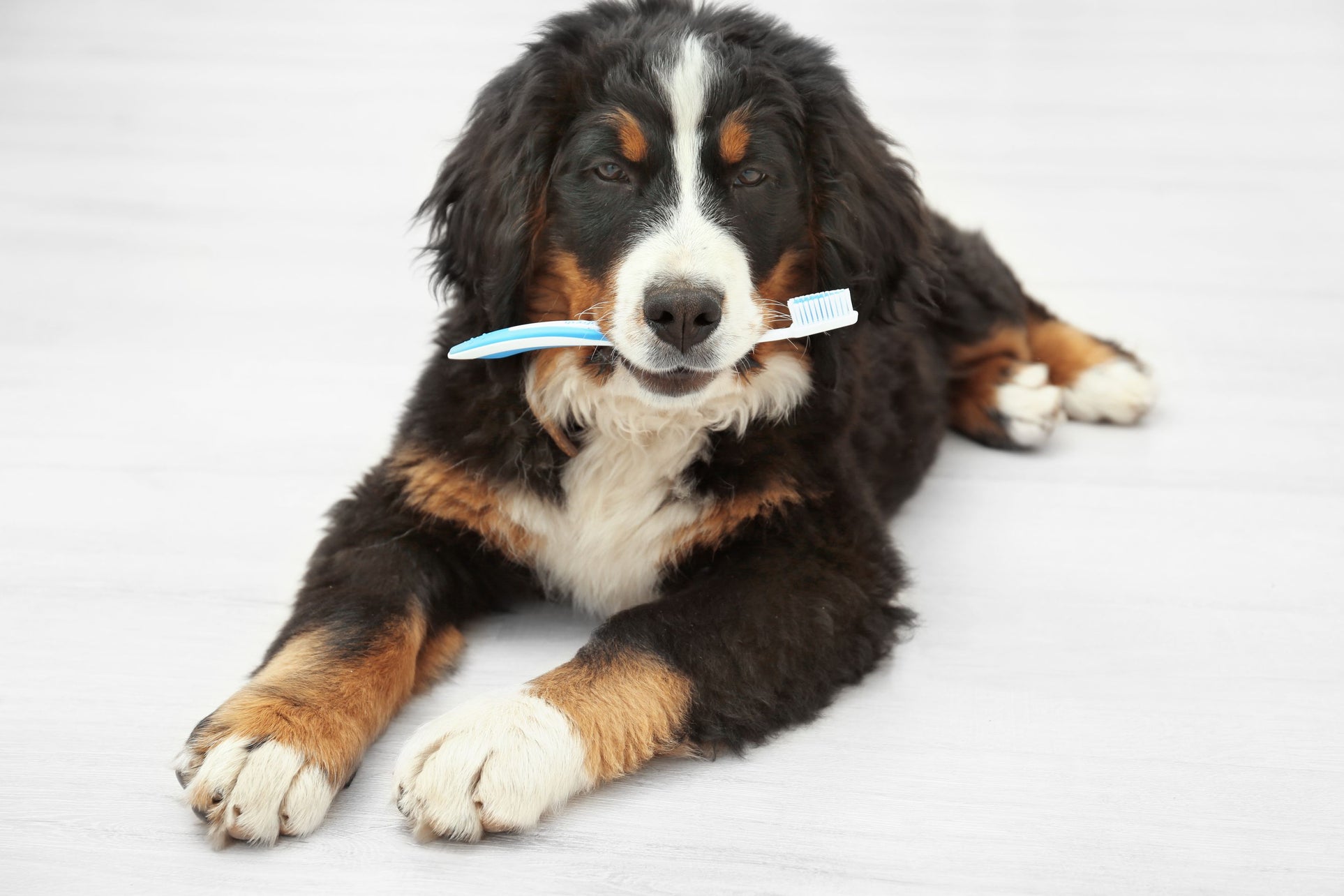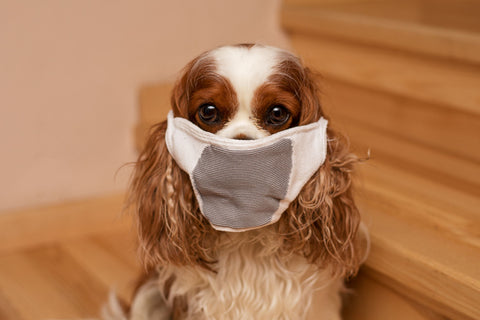
5 Easy Tips to Prevent Pet Dental Disease
February 08, 2021February is Pet Dental Month, and it's the perfect time to make sure you're not overlooking the importance of your pet’s oral hygiene.
American Veterinary Dental Society reports that up to 80% of dogs and 70% of cats have some kind of oral disease by the very young age of 3 years old! Oral disease is the most common problem our four-legged friends encounter, and it’s preventable!
We will share with you the reasons why your pet’s oral care is so critical and 5 simple tips to help your pet achieve optimum oral health.
Prevent Bad Breath

Don’t you just love coming home at the end of the day and your furry-friend has missed you so much that they wish to be close to you? But when they get close to your face, you need to turn away because their breath is so bad. Unfortunately, that is a sign that bacteria is building up on their teeth.
Cleaning your dog’s teeth regularly can help prevent bacteria from building up on their teeth that causes that unpleasant odor from developing.
It’s the same biological process that happens with humans. Natural biofilm called plaque coats the teeth’s surface. After a few days, the film will calcify and turn cement-hard. While the first layer is microscopic, more layers will accumulate over time.
This will create a nasty, yellow-brown film over your dog’s teeth known as plaque.
If we don’t stay on top of it, our dog’s teeth will need professional cleaning to remove the tartar build-up and could turn into a very costly bill.
Prevent Tooth Loss

Over time, if we don’t take care of their teeth, the structures that support your dog’s teeth can become damaged or infected. Severe, prolonged damage can cause tooth loss.
By brushing your pet’s teeth, you can make sure those teeth-supporting structures remain strong and healthy. Then, your dog’s teeth will stay in place, making it easier for them to chew their food and enjoy life.
If you keep ignoring their bad teeth, it can lead to malnutrition or other health concerns. If you haven’t talked to your vet about professional cleaning, now is the time! Regular cleanings can help you prevent your dog from losing its teeth.
Prevent Pain From Severe Dental Disease
You might not realize your dog has a severe dental problem until it becomes more advanced. In fact, many dogs are good at hiding their pain.
Gingivitis and periodontal disease can both cause pain. Imagine the last time you had a toothache. Would you want your dog to experience the same issues?
Dental disease can become painful for dogs and make them not want to eat. They might also experience mood changes.
A few signs your dog may have pain and possibly dental disease include:
- Broken teeth
- Loose teeth
- Bad breath
- Painful or bleeding gums
- Refusal to eat or drink
- Excessive Drooling
You can help prevent them from being in pain by taking them in for regular checkups. Your vet will confirm if they have a healthy mouth, and if there’s a problem, you can catch it early.
Avoid Organ Damage Caused By Plaque

The bacteria that causes plaque to form can enter the bloodstream. Once it travels through the body, bacteria can spread to the heart, liver, and kidneys. This process is called bacteremia.
Oral inflammation allows bacteria in the mouth to enter directly into the bloodstream. Once circulating, these bacteria can travel to and establish in other organs, especially the liver and kidneys.
Chronic inflammation from periodontal disease can also increase a dog’s heart disease risk.
Circulating bacteria can cause an inflammatory condition known as endocarditis. Studies have also shown that dogs with the dental disease have an increased risk of congestive heart failure, a progressive and potentially fatal disease.
5 Easy tips to keep your dog’s teeth clean!
The best way to maintain your dog’s oral health is to take appropriate preventative measures before symptoms occur. Give these solutions a try!
- Brushing your pet’s teeth regularly
- Plaque-removing dental treats
- Pet dental wipes
- Teeth-cleaning chews
- Professional dental cleanings with a veterinarian
Did you know that studies have shown that omega-3 fatty acids can significantly reduce the signs of periodontal disease? Salmon oil for dogs is a supplement that is rich in omega-3 fatty acids. Supplementing with DHA and EPA omega-3s or including them in your regular diet can help keep gums healthy and teeth firmly rooted, reducing the possibility of tooth decay forming between damaged gums and teeth.
If you think your pet has oral issues, it is best to get them to the vet right away. Catching those dental health issues early on will help you prevent significant future problems.
